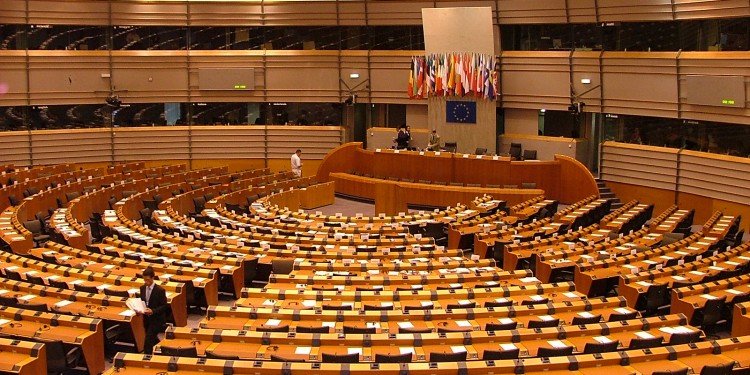
The process of European unification is undergoing a deep crisis, certainly the deepest since it started at the beginning of the 1950s. In less than a year, the EU faced two major tests—first the Greek quarrel, then the refugee crisis — that revealed its true face: a mixture of impotence, unwillingness, egoism, arrogance and cynicism. It is not a pretty spectacle. No illusions can remain about this entity that, far from embodying the federal ideal, has become an empty shell, an object of shame and deserved sarcasm. Those who still ritually proclaim its virtues are the representatives of a highly discredited political elite who seem to no longer have any culture or values. The more they assert their belief in the EU, the more they disqualify it, even in the eyes of the millions of people who have never felt any sympathy for conservatism, nationalism and xenophobia.
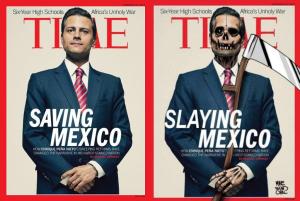
This is the third and last of three book reviews that look at what Mexican intellectuals on the left have written in an attempt to understand Ayotzinapa and what it symbolizes and signifies for their country and its future. The first review appeared here and the second here.
Adolfo Gilly and Rhina Roux. El tiempo del despojo: Siete ensayos sobre un cambio de época. Mexico: Editoria Ithaca, 2015. 191pp. Bibliography. Available only in Spanish.
review
First, allow me to come clean: I count Paul Le Blanc as a friend and comrade and am in his debt—along with Peter Hudis, author of Marx’s Concept of the Alternative to Capitalism (Haymarket, 2013)—for inviting me to join the editorial board of the Complete Works of Rosa Luxemburg being published by Verso Books. And I am in agreement with many of the positions on politics and historical matters that Le Blanc expresses in Unfinished Leninism.
review
The Power Structure and Foreign Policy
The godfather of macro-level power structure research in the United States was the sociologist C. Wright Mills, author of The Power Elite (1956).
review
In 2001, Professor Danny Dorling wrote an essay entitled “Anecdote Is the Singular of Data.” In it he explored how, during his teenage years, he grasped the idea that the places people live impact the lives they lead. Dorling opens the essay by describing a pedestrianized subway near his childhood home. The subway had four entrances, each leading from a different housing development.
review
The American Dream, that fantasy of growth that has long girded the ideology of entrepreneurship and a better future, is in crisis. Many haven’t felt the dream for decades, some never having experienced it at all. Robert Putnam, in his latest work, Our Kids, seeks to confront this stagnation in our economic dreams by interrogating the forces that have taken hold of communities across the United States.
 Now as usual, ten past nine; I certainly will not go on beyond ten past ten. And I would like to say at once that this is the task. It is so difficult that it is as well to say at the beginning that it can be done. Five hundred and eighty-three pages [Oliver Cox’s Caste, Class and Race: A Study in Social Dynamics].
Now as usual, ten past nine; I certainly will not go on beyond ten past ten. And I would like to say at once that this is the task. It is so difficult that it is as well to say at the beginning that it can be done. Five hundred and eighty-three pages [Oliver Cox’s Caste, Class and Race: A Study in Social Dynamics].
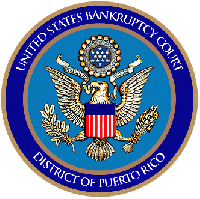 After ten years of economic contraction, many of the citizens of Puerto Rico find themselves watching the secular decomposition of a reality that in its heyday was painted by many as one of relative socio-economic welfare.
After ten years of economic contraction, many of the citizens of Puerto Rico find themselves watching the secular decomposition of a reality that in its heyday was painted by many as one of relative socio-economic welfare.

The figure of a gryphon, the legendary feral, clawed, winged creature that nests above the one-square mile City of London, Britain’s financial industry (akin to Wall Street, but with its own legal authority, too) is an apt symbol for an untrammeled center of global capital. A creature of prey, it is redolent as the guardian of ill-gotten, even murderous gain. What else is the financial center of the United Kingdom, which introduced the tax-free zone that modeled capital flight around the world? The City predates the Cayman Islands or Switzerland as tranches for tax avoidance and is a main locus for starving the welfare state.
A view from the Puerto Rican diaspora

Puerto Rico is undergoing a profound fiscal crisis. Our country is besieged by the big interests of Wall Street’s credit agencies and vulture funds, which as they’ve done in other parts of the world, such as Spain, Greece and Argentina, only seek an uncontrolled increase in their profits. These profits come at the cost of great sacrifices to working people, which include drastic cuts to social services that will have a special impact on education and health care.
In order to impose their inhumane demands, they use their powerful influence within government structures, in the courts and in the mass media to guarantee payment of the immoral and odious debt, with no concern for the deterioration of our quality of life and the elimination of hard-won labor rights. They establish, de facto, a dictatorship of oligarchic and monopoly capital over the whole of society, the working class majority stripped of the financial resources needed to insure a dignified subsistence.
Socialist Praxis
By: Saulo ColonOctober 17, 2015
 The radical left strategy of working within broad left parties has suffered a major setback after SYRIZA´s capitulation. The answer to this crisis lies neither in continuing “business as usual,” nor in ignoring the question of political power. SYRIZA´s capitulation to the austerity diktat, the ensuing emergence of Popular Unity and the fresh elections looming ahead, have brought the question of organization for the radical left at the forefront of debate. SYRIZA, which used to be the prime example of left unity against austerity, is giving way to an increasingly fragmented political landscape of the Greek left, as Prime Minister Alexis Tsipras declared his will to implement the new memorandum.
The radical left strategy of working within broad left parties has suffered a major setback after SYRIZA´s capitulation. The answer to this crisis lies neither in continuing “business as usual,” nor in ignoring the question of political power. SYRIZA´s capitulation to the austerity diktat, the ensuing emergence of Popular Unity and the fresh elections looming ahead, have brought the question of organization for the radical left at the forefront of debate. SYRIZA, which used to be the prime example of left unity against austerity, is giving way to an increasingly fragmented political landscape of the Greek left, as Prime Minister Alexis Tsipras declared his will to implement the new memorandum.
By: newpoliticsOctober 16, 2015

The English translation of this article was originally published by International Boulevard
From Al Safir Al Arabi
Behind the violence shaking occupied Jerusalem, writes Haneen Naamnih in Al Safir Al Arabi, is a vast colonial enterprise slowly remaking the city.
Capitalism is the Crisis
By: Saulo ColonOctober 5, 2015
1
The neoliberal era can be retrospectively identified as beginning with the economic crisis of 1973, or, more precisely, with the strategic response of state managers and employers to that crisis. Previous eras in the history of capitalism have tended to close with the onset of further period of systemic crisis; 1973, for example, saw the end of the era of state capitalism which began in 1929. The neoliberal era, however, has not only survived the crisis which began in 2007, but its characteristic features are, if anything, being further extended and embedded, rather than reversed.
Greece still has alternatives. What mix of compromise and confrontation could yield something better than more austerity?
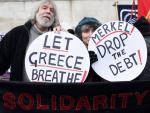 If nothing else, phase one of Syriza’s tenure has revealed the limits of reformism in a period of stagnation and global economic integration.
If nothing else, phase one of Syriza’s tenure has revealed the limits of reformism in a period of stagnation and global economic integration.
A New Popular Unity (Unidad Popular)
By: Saulo ColonSeptember 12, 2015
The Greek Drama of 2015: What Next?
a talk by Nicholas Levis (Nikos Evangelos)
The preliminary report of the parliamentary Truth Committee on Public Debt declared the entire Greek debt to be odious, unethical, unsustainable and illegal. Do they have a case?
Sunday, September 13, 2015
2:00 – 3:00pm
International Affairs Building, Room 409
Columbia University, Manhattan
Entrance at 118th Street and Amsterdam
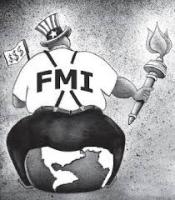
Paul Krugman’s analysis of the Puerto Rican debt crisis has subtle problems, but with big policy implications. Overall, his piece hits key points that other economists continue to miss: 1) Puerto Rico’s fiscal crisis is closely related to its economic depression, 2) the government patched up the problem with borrowing, instead of going to the root of it, 3) Puerto Rico’s low rate of labor force participation is not necessarily a result of welfare, 4) the situation is exacerbated by the Jones Act, 5) too much austerity can be self-defeating, and 6) it would be a terrible idea to give the hedge funds what they want (destroying the island’s education system in the name of fiscal responsibility). All of these points demonstrate Krugman understands the Puerto Rican case better than many Puerto Rican policy makers and economists. However, the subtle problems in his piece should be further discussed.
Dispatches from Greece (Report #8 from Athens)
While in Athens, I have gotten into the habit of ending the day by enjoying an iced coffee with cream in an outdoor cafe in a park about one mile from my hotel. It is there that I have been writing these dispatches. As I remarked in my first report, the park the cafe is in is filled with children, teenagers, young couples, the middle-aged, and old people until quite late. The cafe does not start to empty until after midnight.
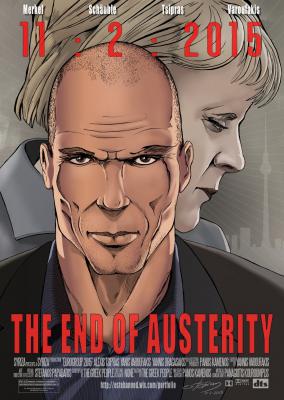


 Now as usual, ten past nine; I certainly will not go on beyond ten past ten. And I would like to say at once that this is the task. It is so difficult that it is as well to say at the beginning that it can be done. Five hundred and eighty-three pages [Oliver Cox’s Caste, Class and Race: A Study in Social Dynamics].
Now as usual, ten past nine; I certainly will not go on beyond ten past ten. And I would like to say at once that this is the task. It is so difficult that it is as well to say at the beginning that it can be done. Five hundred and eighty-three pages [Oliver Cox’s Caste, Class and Race: A Study in Social Dynamics]. After ten years of economic contraction, many of the citizens of Puerto Rico find themselves watching the secular decomposition of a reality that in its heyday was painted by many as one of relative socio-economic welfare.
After ten years of economic contraction, many of the citizens of Puerto Rico find themselves watching the secular decomposition of a reality that in its heyday was painted by many as one of relative socio-economic welfare.

 The radical left strategy of working within broad left parties has suffered a major setback after SYRIZA´s capitulation. The answer to this crisis lies neither in continuing “business as usual,” nor in ignoring the question of political power. SYRIZA´s capitulation to the austerity diktat, the ensuing emergence of Popular Unity and the fresh elections looming ahead, have brought the question of organization for the radical left at the forefront of debate. SYRIZA, which used to be the prime example of left unity against austerity, is giving way to an increasingly fragmented political landscape of the Greek left, as Prime Minister Alexis Tsipras declared his will to implement the new memorandum.
The radical left strategy of working within broad left parties has suffered a major setback after SYRIZA´s capitulation. The answer to this crisis lies neither in continuing “business as usual,” nor in ignoring the question of political power. SYRIZA´s capitulation to the austerity diktat, the ensuing emergence of Popular Unity and the fresh elections looming ahead, have brought the question of organization for the radical left at the forefront of debate. SYRIZA, which used to be the prime example of left unity against austerity, is giving way to an increasingly fragmented political landscape of the Greek left, as Prime Minister Alexis Tsipras declared his will to implement the new memorandum.
 If nothing else,
If nothing else, 

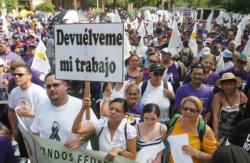
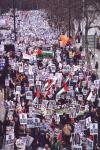 Dan Swain discusses the contested ambitions and leaderships within our movements. This article was originally published in the Summer 2015 issue of the rs21 magazine.
Dan Swain discusses the contested ambitions and leaderships within our movements. This article was originally published in the Summer 2015 issue of the rs21 magazine.